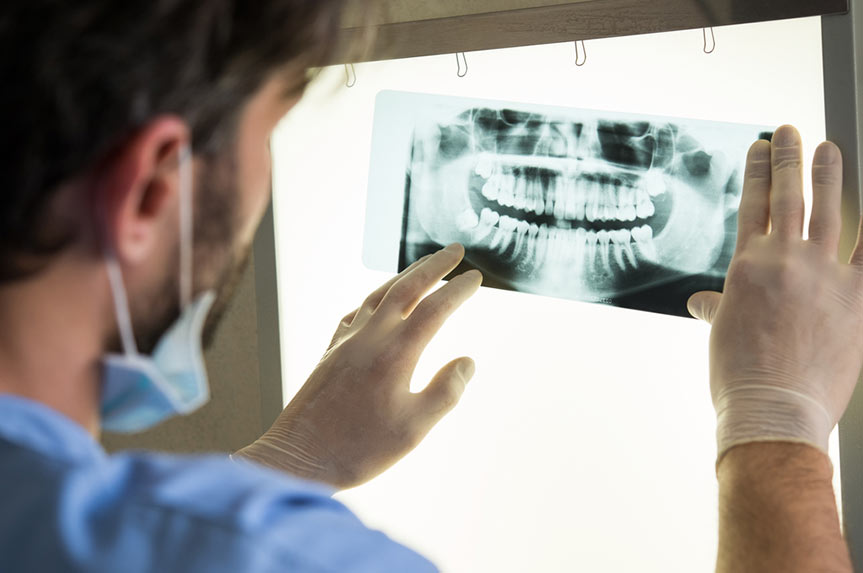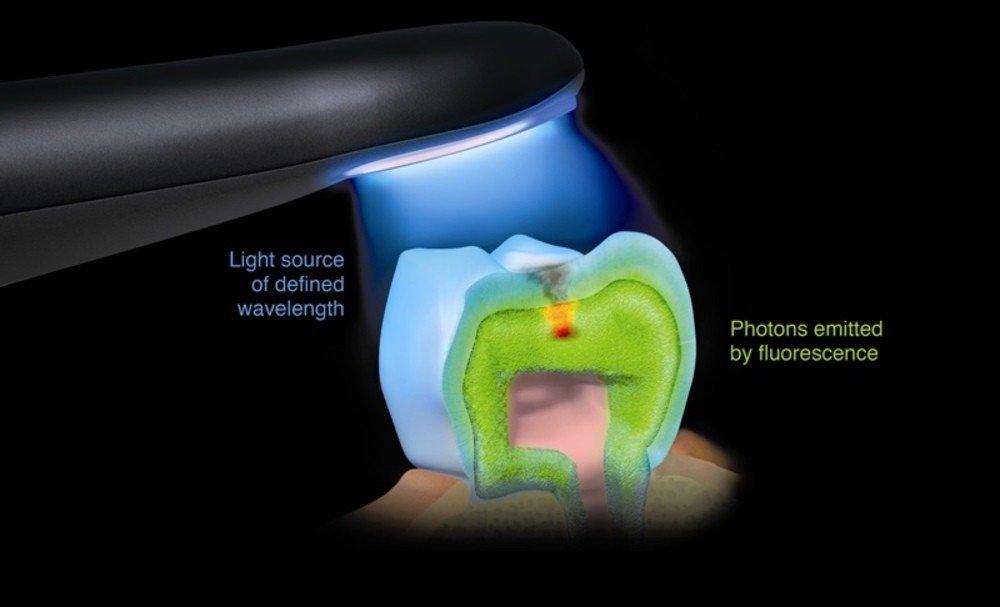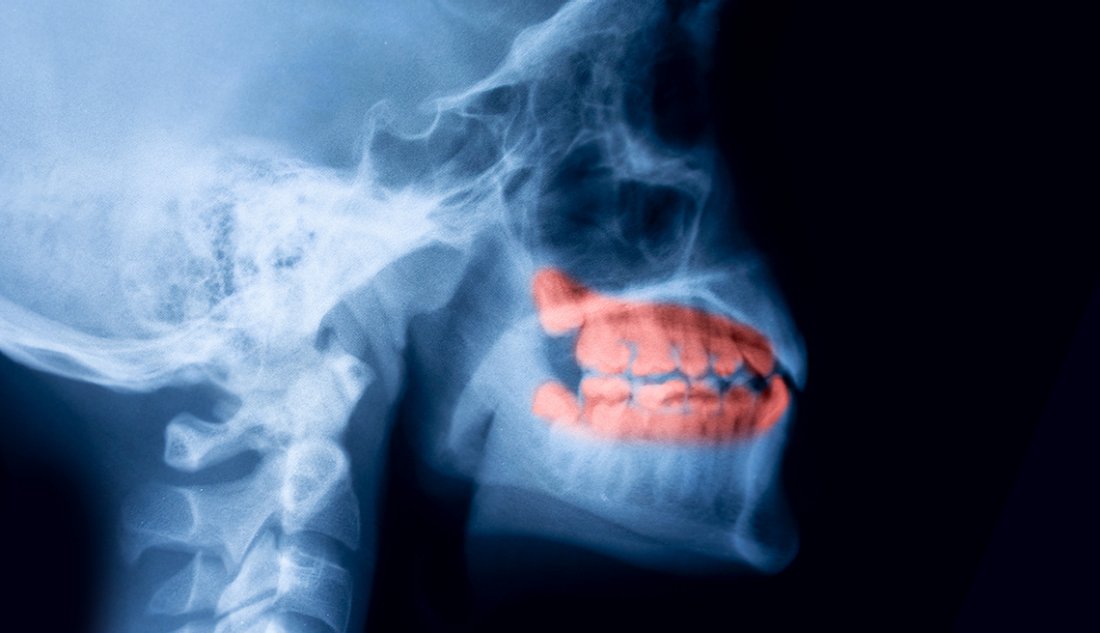Did you know that pediatric dentistry is a specialized branch of dentistry that focuses on providing dental care to children from birth through adolescence? Pediatric dentists not only promote dental health in children, but also serve as a valuable resource for parents. It’s recommended that children have their first dental visit after the presence of their first tooth or by their first birthday. Why? Because early oral examination is crucial for detecting tooth decay in its early stages. Pediatric dentists undergo specialized training through a postgraduate residency program after completing dental school, equipping them with the skills to diagnose and treat oral diseases, monitor dental development, perform surgical procedures, and even provide emergency dental care. With a projected growth in job demand of 20% from 2014 to 2024, the career outlook for pediatric dentists is looking quite promising!

The Importance of Early Oral Examinations
When it comes to your child’s dental health, prevention is key. Early oral examinations play a crucial role in ensuring that your child maintains a healthy smile throughout their life. By detecting tooth decay in its early stages, pediatric dentists are able to provide the necessary treatment to prevent further damage and promote lifelong dental health.
Prevention is Key
Prevention is always better than treatment, especially when it comes to dental health. Early oral examinations allow pediatric dentists to educate both children and their parents on proper oral hygiene practices. By teaching children how to properly brush and floss their teeth, as well as the importance of regular dental visits, pediatric dentists can help establish good oral health habits from an early age.
Detecting Tooth Decay in Its Early Stages
Tooth decay is a common problem in children and can lead to more serious dental issues if left untreated. Early oral examinations allow pediatric dentists to detect tooth decay in its early stages, before it progresses and causes further damage. By regularly examining your child’s teeth, pediatric dentists can identify any signs of decay and provide the necessary treatment to prevent it from worsening.
Promoting Lifelong Dental Health
One of the main goals of pediatric dentistry is to promote lifelong dental health. By starting early with regular oral examinations, pediatric dentists can establish a foundation of good oral health habits that will benefit your child throughout their life. They can provide guidance on proper brushing and flossing techniques, as well as educate parents on the importance of a healthy diet and nutrition for maintaining strong and healthy teeth.
Pediatric Dentistry
Pediatric dentistry is a branch of dentistry that focuses on providing dental care to children from birth through adolescence. It encompasses a wide range of dental services, from preventive care to specialized treatments for children with unique dental needs. Pediatric dentists not only treat dental issues in children, but they also serve as a resource for parents, offering guidance and education on proper oral hygiene practices and overall dental health for their child.
Definition and Scope
Pediatric dentistry is specialized in the dental treatment of children and adolescents. It involves the prevention, diagnosis, and treatment of various dental issues that are unique to this age group. Pediatric dentists are trained to provide comprehensive dental care to children, including preventive services such as dental cleanings, fluoride treatments, and dental sealants, as well as restorative treatments like fillings, crowns, and extractions.
Providing Dental Care to Children
Providing dental care to children requires a different approach compared to adults. Pediatric dentists are skilled in creating a comfortable and kid-friendly environment to ensure that children feel at ease during their dental visits. They use techniques and communication methods that are tailored to the needs of children, making the experience more enjoyable and less intimidating. Pediatric dentists are also trained to handle behavioral issues that may arise during dental treatments, ensuring that children receive the care they need in a safe and supportive manner.
Resource for Parents
In addition to providing dental care to children, pediatric dentists also play a vital role in educating and supporting parents in maintaining their child’s dental health. They offer guidance on proper oral hygiene practices, such as brushing and flossing techniques, and provide information on the importance of a healthy diet and nutrition for optimal dental health. Pediatric dentists also address any concerns or questions parents may have regarding their child’s dental development, helping them to better understand and care for their child’s oral health needs.
When to Schedule the First Dental Visit
Many parents wonder when they should schedule their child’s first dental visit. The American Academy of Pediatric Dentistry recommends that children have their first dental visit by the time they reach their first birthday or after the presence of their first tooth. By scheduling this early dental visit, parents can ensure that their child’s dental health is monitored from the beginning and any issues are addressed promptly.
After the Presence of the First Tooth
Once your child’s first tooth erupts, it is time to schedule their first dental visit. This initial visit allows the pediatric dentist to perform a thorough examination of your child’s mouth and gums, checking for any signs of dental issues or abnormalities. It also gives the dentist an opportunity to provide guidance on proper oral hygiene practices and address any concerns or questions that parents may have regarding their child’s dental health.
By the Child’s First Birthday
If your child’s first tooth has not yet erupted, it is important to schedule their first dental visit by their first birthday. This early visit allows the pediatric dentist to establish a baseline for your child’s dental health and closely monitor their dental development as they grow. By starting dental visits early, parents can ensure that any potential issues are detected and addressed promptly, setting the stage for a lifetime of good oral health.
Pediatric Dentists: Specialists in Children’s Dental Health
Pediatric dentists are dental professionals who specialize in providing dental care to children. They undergo specialized training through a postgraduate residency program after completing dental school. This additional training equips pediatric dentists with the knowledge and skills necessary to effectively and safely address the unique dental needs of children.
Specialized Training through Postgraduate Residency
Pediatric dentists complete a postgraduate residency program that focuses specifically on pediatric dentistry. During this residency, they receive extensive training in child psychology, behavior management, and age-specific dental techniques. This training allows them to effectively communicate with children, manage any behavioral issues that may arise during dental visits, and perform dental procedures tailored to the needs of children.
Job Responsibilities
Pediatric dentists have a wide range of job responsibilities that revolve around the dental care and oral health of children. Their main focus is diagnosing and treating oral diseases and conditions specific to children, such as tooth decay, gum disease, and developmental abnormalities. Additionally, pediatric dentists play a crucial role in monitoring dental development, ensuring that children’s teeth and jaws are growing and developing properly.

Diagnosing and Treating Oral Diseases
One of the primary responsibilities of pediatric dentists is diagnosing and treating oral diseases in children. They have the expertise to identify dental issues unique to children, such as childhood tooth decay and gum disease. Pediatric dentists use various diagnostic tools and techniques, such as visual inspections, dental x-rays, and specialized tools, to accurately diagnose oral diseases and provide the appropriate treatment.
Monitoring Dental Development
Another important responsibility of pediatric dentists is monitoring the dental development of children. They track the growth and eruption of teeth, as well as the development of the jaws and facial structures. By closely monitoring dental development, pediatric dentists can identify any abnormalities or issues that may require intervention or specialized treatment.
Performing Surgical Procedures
Pediatric dentists are also trained to perform surgical procedures when necessary. This can include tooth extractions, placement of dental crowns, and even more complex procedures such as orthodontic interventions. Pediatric dentists ensure that surgical procedures are performed safely and efficiently, taking into consideration the unique needs and comfort of children.
Providing Emergency Dental Care
Accidents happen, and when they do, pediatric dentists are ready to provide emergency dental care for children. Whether it’s a knocked-out tooth, a toothache, or any other dental emergency, pediatric dentists are equipped to handle these situations with expertise and compassion. They prioritize the comfort and well-being of the child while providing prompt and effective treatment to alleviate any pain or discomfort.
Detecting Tooth Decay in Children
Tooth decay is a prevalent issue in children, affecting millions of children worldwide. Detecting tooth decay in its early stages is crucial to prevent further damage and maintain good oral health. Early oral examinations performed by pediatric dentists play a vital role in detecting tooth decay and addressing it before it progresses.
The Prevalence of Tooth Decay in Children
Tooth decay is one of the most common chronic childhood diseases, with a significant impact on children’s oral health. According to the Centers for Disease Control and Prevention, approximately 20% of children aged 5 to 11 have at least one untreated decayed tooth. The prevalence of tooth decay is even higher among low-income children, with over 40% of them experiencing dental decay.
Difficulties in Detecting Tooth Decay in Children
Detecting tooth decay in children can be challenging due to several factors. Young children may not be able to communicate their symptoms effectively, and dental issues may go unnoticed until they become more severe. Additionally, tooth decay in children can present differently than in adults, making it harder to detect. This highlights the importance of early oral examinations, as pediatric dentists are trained to identify and address tooth decay in its early stages.

Role of Early Oral Examinations
Early oral examinations are a critical component of preventive dental care for children. By scheduling regular dental visits from an early age, parents allow pediatric dentists to monitor the child’s oral health and detect any signs of tooth decay early on. Early detection of tooth decay enables prompt intervention and treatment, preventing further damage to the teeth and promoting better oral health outcomes.
Early Signs and Symptoms of Tooth Decay in Children
While tooth decay can be difficult to detect, there are several signs and symptoms that parents should be aware of. By recognizing these early signs, parents can seek prompt dental care for their child and prevent further damage to their teeth.
Visible Discoloration or Spots
One of the early signs of tooth decay in children is visible discoloration or spots on the teeth. This can manifest as white, brown, or black spots on the surface of the teeth. These discolorations indicate areas where the tooth enamel has been weakened by decay-causing bacteria.
Tooth Sensitivity
Tooth sensitivity is another common symptom of tooth decay in children. The affected teeth may be sensitive to hot or cold temperatures, as well as sweet or acidic foods and drinks. Children may experience discomfort or pain when consuming these substances, indicating the presence of tooth decay.
Pain or Discomfort
As tooth decay progresses, it can cause pain or discomfort in the affected teeth. Children may experience toothaches, especially when biting down or applying pressure to the teeth. Persistent or recurring pain in the teeth should be evaluated by a pediatric dentist to determine the underlying cause, which may be tooth decay.
Bad Breath
Persistent bad breath or an unpleasant taste in the mouth can be a sign of tooth decay. The presence of decay-causing bacteria in the mouth produces sulfur compounds, which can lead to foul-smelling breath. If a child consistently has bad breath that cannot be resolved through regular brushing and mouthwash use, it may be an indication of tooth decay.
Difficulty Chewing or Eating
Tooth decay can affect the functionality of the teeth, making it difficult for children to chew or eat certain foods. They may avoid certain foods or exhibit changes in their eating habits due to pain or discomfort associated with tooth decay. Difficulty chewing or eating should be addressed promptly to prevent further damage to the teeth and ensure proper nutrition for the child.

Increased Cavity Risk Factors
Certain factors can increase a child’s risk of developing tooth decay. These include poor oral hygiene habits, a diet high in sugar and carbohydrates, lack of fluoride exposure, and a history of dental decay in the family. Children with these risk factors should be closely monitored and have regular early oral examinations to detect and address tooth decay as early as possible.
Benefits of Early Detection of Tooth Decay
Early detection of tooth decay offers numerous benefits for children’s oral health and overall well-being. By addressing tooth decay in its early stages, pediatric dentists can prevent further damage, provide less invasive treatment options, reduce the cost of dental care, and improve the child’s oral health outcome.
Preventing Further Damage
When tooth decay is detected early, the pediatric dentist can intervene and provide the necessary treatment to prevent the decay from progressing. This can include removing the decayed portion of the tooth and placing a dental filling. By stopping the decay in its tracks, further damage to the tooth structure can be prevented, preserving the tooth and reducing the need for more extensive treatment in the future.
Less Invasive Treatment Options
Early detection of tooth decay allows for less invasive treatment options to be employed. In the early stages, decay may only affect the outer layer of the tooth, known as the enamel. At this stage, the decay can be treated with minimally invasive techniques, such as dental sealants or fluoride treatments, which can halt the progression of the decay and prevent the need for more invasive procedures.
Reducing Cost of Dental Care
Addressing tooth decay early can also help reduce the cost of dental care. By detecting and treating decay in its early stages, the treatment is often simpler and less extensive, resulting in lower dental expenses. Regular early oral examinations and preventive care can help minimize the need for costly restorative treatments and maintain good oral health without breaking the bank.
Improving Oral Health and Overall Well-being
Early detection and intervention for tooth decay not only improve oral health but also contribute to overall well-being. By maintaining healthy teeth and gums, children can eat, speak, and smile with confidence. Good oral health also plays a significant role in overall health, as dental issues can contribute to other health problems if left untreated. By prioritizing early oral examinations, parents can give their children the best chance at a healthy and fulfilling life.
Methods and Techniques Used in Early Oral Examinations
Pediatric dentists utilize various methods and techniques during early oral examinations to ensure a thorough assessment of a child’s dental health.

Visual Inspection
Visual inspection is a fundamental component of early oral examinations. Pediatric dentists carefully examine the teeth, gums, tongue, and other oral structures for any signs of tooth decay, gum disease, or abnormalities. They check for discoloration, cavities, swelling, and other indicators of dental issues during the visual inspection.
Dental X-rays
Dental x-rays are another valuable tool used during early oral examinations. X-rays allow pediatric dentists to see beneath the surfaces of the teeth and gums, revealing any hidden dental issues that may not be visible to the naked eye. X-rays can detect tooth decay between the teeth or underneath dental restorations, helping the dentist determine the most appropriate treatment plan.
Use of Specialized Tools
Pediatric dentists utilize specialized dental tools to perform a comprehensive examination of a child’s oral cavity. These tools include dental mirrors, explorers, and probes, which allow the dentist to examine the teeth and gums more closely and detect any areas of concern. The use of specialized tools ensures a thorough assessment of a child’s dental health.
Assessment of Dental Development
During early oral examinations, pediatric dentists also assess a child’s dental development. They examine the eruption pattern of the teeth, the alignment of the jaws, and the overall growth and development of the oral structures. This assessment helps the dentist identify any abnormalities or issues with dental development that may require intervention or specialized treatment.
Oral Health Education
In addition to the examination itself, early oral examinations provide an opportunity for pediatric dentists to educate both children and their parents on proper oral hygiene practices. They offer guidance on brushing and flossing techniques, the use of fluoride, and the importance of a healthy diet for maintaining good oral health. Pediatric dentists also address any concerns or questions that parents may have, ensuring that they are equipped with the knowledge and understanding necessary to care for their child’s dental health.
The Role of Parents in Early Oral Examinations
Parents play a crucial role in ensuring the success of early oral examinations and promoting their child’s dental health. By actively participating and following the guidance of pediatric dentists, parents can help their child maintain a healthy smile and prevent dental issues.
Importance of Regular Brushing and Flossing
Parents should ensure that their child practices regular brushing and flossing as part of their daily oral hygiene routine. Pediatric dentists can provide guidance on proper brushing and flossing techniques, as well as recommendations for age-appropriate oral hygiene products. By instilling good oral hygiene habits early on, parents set the foundation for a lifetime of good dental health.
Monitoring Diet and Nutrition
A healthy diet plays a significant role in dental health. Parents should be mindful of their child’s diet and nutrition, limiting the consumption of sugary foods and drinks, which can contribute to tooth decay. Encouraging a diet rich in fruits, vegetables, and whole grains can help promote good oral health and overall well-being.
Avoiding Sugary Drinks and Snacks
Sugary drinks and snacks are a common cause of tooth decay in children. Parents should encourage their child to opt for water or milk instead of sugary beverages, and limit the consumption of sugary snacks. Choosing healthier alternatives can help reduce the risk of tooth decay and promote good oral health.
Creating a Positive Dental Experience
Parents can also contribute to a positive dental experience for their child. By fostering a positive attitude towards dental visits and maintaining open communication with the pediatric dentist, parents can help alleviate any anxieties or fears their child may have. Creating a positive dental experience sets the stage for a lifetime of regular dental visits and good oral health habits.
The Future of Pediatric Dentistry
The field of pediatric dentistry is constantly evolving, driven by advances in technology and techniques. The future of pediatric dentistry holds new opportunities for improving dental care for children and collaboration with other healthcare professionals.
Projected Growth in Job Demand
The career outlook for pediatric dentists is favorable, with a projected growth in job demand. According to the U.S. Bureau of Labor Statistics, pediatric dentistry is expected to experience a 20% growth in job demand from 2014 to 2024. This growth is driven by an increased emphasis on preventive dental care and a growing population in need of dental services.
Advancing Technology and Techniques
Advancements in technology and techniques are revolutionizing the field of pediatric dentistry. From digital x-rays to laser dentistry, these innovations allow pediatric dentists to provide more accurate diagnoses, less invasive treatments, and enhanced patient comfort. The future of pediatric dentistry holds the promise of even more advanced technologies and techniques that will further improve dental care for children.
Importance of Collaboration with Other Healthcare Professionals
Collaboration with other healthcare professionals is vital in providing comprehensive care for children. Pediatric dentists often work closely with pediatricians, orthodontists, and other specialists to ensure that their patients receive the most appropriate and comprehensive dental care. This collaboration allows for a multidisciplinary approach to children’s healthcare, addressing their unique needs and promoting overall well-being.
In conclusion, early oral examinations play a crucial role in promoting lifelong dental health in children. Pediatric dentists, with their specialized training and expertise, are invaluable in diagnosing and treating oral diseases, monitoring dental development, and providing emergency dental care. Early detection of tooth decay through regular oral examinations allows for prompt intervention and less invasive treatment options. By actively participating in their child’s dental care and following the guidance of pediatric dentists, parents can help ensure that their child maintains a healthy smile for years to come. The future of pediatric dentistry looks promising, with advancements in technology and collaboration with other healthcare professionals bringing new opportunities for improving dental care for children.